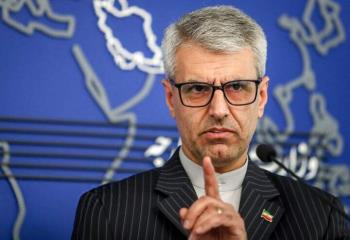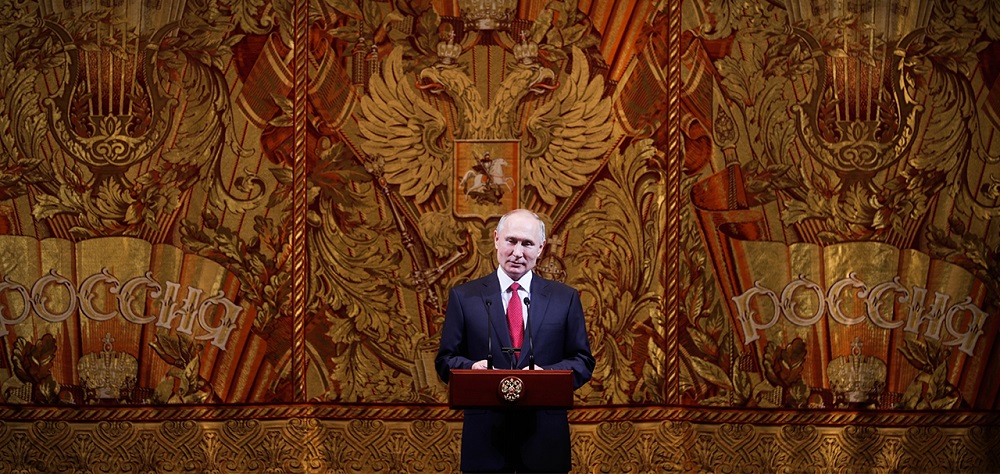Alwaght- Several days after Armenia and Azerbaijan agreed to a ceasefire in Karabakh the clashes still continue in the disputed region.
The ceasefire mediated by Russia aimed to give a repose allowing the two sides to collect the dead bodies and exchange captives. However, its violation has delayed the exchange process.
After the cessation of fire was announced, a residential complex in Ganja town of Azerbaijan was targeted by a rocket strike, in which 9 civilians were killed and others were injured. Armenian army denied that it launched a rocket attack, while accusing the Azerbaijani army of continuing to shell Karabakh.
What is clear is that the two sides accuse each other of breaching the terms of the truce.
Where are the Russians standing?
Tensions followed by clashes started a month ago only to develop into a full-scale war. The Russian entry to the scene for mediation after a month of heavy clashes between the neighbors seems to have come a little late.
Russia was expected to intervene as an interlocutor very earlier to bring the two sides to the negotiating table. But it did so a couple of weeks after the deadly exchange of fire in the contested region in Southern Caucasus.
Additionally, the Russian mediation did yield a very fragile peace and only 24 hours after the Moscow meeting and ceasefire statement the warring sides resumed their battle.
Although the war is returning to its pre-deal severity, the Russians do not seem to have a serious will to put an end to the Karabakh crisis. They are relatively silent and even indifferent to the infringement of the agreement.
This issue may be because Russia wants to get both sides’ satisfaction simultaneously. Moscow seems to have reviewed its policy. Just contrary to its full support to Yerevan in the past clashes, Kremlin now prefers to pursue a middle way.
The relations between Russia and the West are currently tense over the poisoning of the Russian opposition leader Alexey Navalny and Moscow is not interested to add another trouble to its policy on its southern borders while in tensions with the Western governments.
Furthermore, it knows very well that if it moves late, Azerbaijan will be the exclusive base of the West against Russia. So, Kremlin leaders presently seek to steer clear of Azerbaijan’s resentment over the Karabakh crisis.
Additionally, the Russians can no longer ignore Armenia as a traditional ally in the Caucasus and fully drive Yerevan out of the game in the disputed region. Their preference now is saving the status of mediation, at least ostensibly, in the Karabakh crisis.
Moscow also knows that unilateral entry to the Karabakh case will make its cooperation with Ankara in Syria difficult. Though Turkey is present in the Caucasus crisis as a supporter of Azerbaijan, Russia does not want to add another area of difference with Turkey to already-existing areas, including Syria. That is why Moscow tries to at least act neutrally and push forward its mediation. This may explain its considerable hesitation in entry to Karabakh war as it does explain why it declined to seriously respond to the violation of the ceasefire only a day after it was signed.
Belated entry to Karabakh conflict has another reason: The relative distance of the Prime Minister Nikol Pashinyan of Armenia from old Yerevan friends in Russia. The government of Pashinyan assumed the power in Armenia after a period of protests against PM Serzh Sargsyan who was a close ally to the Kremlin and its leaders. Sargsyan’s resignation after the 2018 protests bore a tangible change in Yerevan’s foreign policy. Although Pashinyan traveled to Moscow and underscored the strong bonds of the two countries, his coming to power as an independent leader with an independent government somehow signaled a relative distance with Kremlin. This gave another reason for Moscow to be late in mediating between the warring sides.
Why was the ceasefire broken?
One of the preliminary reactions to the Moscow-brokered truce was made by Ankara leaders who kept insisting on the determination of Karabakh's status.
Ibrahim Kallin, the Turkish presidential spokesman, in reaction said that Ankara wants a diplomatic solution to end the decades-long dispute, adding that any deal not guaranteeing exit of Armenian forces from the “occupied Azerbaijani territories” is doomed to fail.
These remarks exhibited Turkey’s will for the continuation of the battle in Karabakh and that it did not want to see an end to the clashes and saving of the status quo. So, Turkey’s pessimism to the ceasefire can be labeled a factor helping violation of the truce. .
Moreover, during the clashes, Azerbaijan managed to make some advances marked by the seizure of some villages in Karabakh, encouraging Baku that pushing forward with the war can enable it to take the whole of the disputed region from Armenia. But this optimism wrapped in itself a kind of unpredictable risk and gamble for Baku. It is unclear how far Azerbaijan can go in the war and odds are Russia will take a more active role if the war drags on and spills beyond the regional borders. In the case of the Russian interference in the dispute, which would certainly be in favor of Armenia, the course of developments may not be favorable to Azerbaijan.
Therefore, perhaps the most favorable option with the biggest interest to Azerbaijan now is conceding to a ceasefire and saving the status quo. In this case, Baku may save the captured areas and stabilize the situation. Otherwise, Russia will more actively engage in the war in support of Armenia as the Russians would not want to see Karabakh control out of Armenian hands.



























